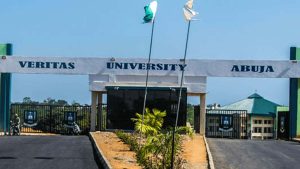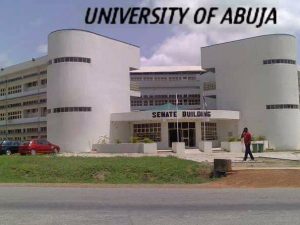Two of some of Abuja’s best-known universities are in turmoil. Activities at the University of Abuja is grounded due to a strike action declared by the local branch of the Academic Staff Union of Universities (ASUU) since mid-week. The strike action is a protestation of the out-going Vice-Chancellor, Prof Abdul-Rasheed Na’Allah’s alleged irregularities, with particular reference to appointments and projects.

Suffering from the over-loved child syndrome?
At the Veritas University, Abuja, the disquiet is of a more tragic nature. Suspicion of foul play in the death of a 100-level Computer Science student has put parents, authorities and the community in a state of radical uncertainty. While the university management insists the student died at the university’s gymnasium ‘naturally’, the lawyer to the parents is questioning that narrative. They are claiming they have seen signs that the student was stabbed, thereby implying that the death had a completely different condition of possibility. It is an indirect way of alleging that Veritas University is a beehive of all manner of elements.
For a university owned by the Catholic Church and a student population whose parents have a hyperactive attachment to it, the inference of any other means of violence must have been a nightmare for everybody concerned. Only the most transparent police report may help the university out of this nightmare and even then it may take more than scattered information management.
Back to the University of Abuja where nothing of a tragic proportion is involved yet, the current strike brings back memories of a university’s chequered history. Formed without a University Law at inception, the University of Abuja has rolled from one calamity to another. One of the Vice-Chancellors was so powerful he could remove the roof of any dissenting academic at a point in time. Removing the roof of a house allocated to an academic was the particular Vice-Chancellor’s way of completely destabilizing such staff by teaching him/her/them to steer clear of resistance to authoritarian tendencies. And the authorities watched with amusement.
Denied the infrastructural splendor it could have enjoyed as a capital city campus, it has remained on structures inherited from others Julius Berger/Police and a primary school. Subsequently so pour in structural outlay and matters of procedure, a former Nigerian ambassador to Germany and a Historian once called it a glorified secondary school. Of course, it angered the staff and the management but the ambassador never apologized and never withdrew the depiction. The Federal Government also never reversed itself in terms of asking Julius Berger to build the university to a capital city status as would have been expected. So, it remains at a distance too far away from the standards of even a Nigerian equivalent of an elite university although that is the university majority of the Nigerian political elite want their children to attend because it is the capital city university. What a paradox?

Stunted?
In the current tussle, the Vice-Chancellor is saying the management would never allow the university to be crippled but activities on the campuses have remained grounded. Any visitor to the main campus last Thursday and Friday can testify to that. He told a meeting of Deans and Heads of Department that in none of the issues in contention in the strike action could he be held liable, asserting he carried out whatever is being protested with due approval from the appropriate authorities. The advertisement for his successor was actually done by the Federal Ministry of Education, he said.
As if aware that the university is generally understood to be too far from a standard place, the Vice-Chancellor has been reported as saying “For over four years, our goal has been to lift this university much higher than it was, and this we have succeeded in doing by taking our academic and infrastructural developments to a world-class level, developing an integrated portal that ensured transparency and ease of accessing results, branding of the university, introduction of foreign languages, introduction of new faculties and several departments, among numerous achievements.”
His critics do not dispute some of these claims but they allege what is behind each of the projects. And they say it in a manner that makes the Vice-Chancellor’s statement about Ministry of Education’s approval for whatever he did more ‘meaningful’
The current turmoil on the campuses are all paradoxical. Veritas University, if only for being owned by the Catholic Church, was expected to overtake all universities in Nigeria, including UI. After all, the Catholic Church is the author of what the world knows as universities today. Over a decade of existence, Veritas University, Abuja has yet to be guaranteed good mention in most of the local ranking exercises, not to talk of the global university ranking exercises. Appearance or non-appearance in ranking exercises is absolutely nothing to be excited about except that it matters for a university that is just starting life.
As the capital city university in Nigeria, the University of Abuja would have been expected to have the best of infrastructures, quality of services, pace setter in following procedures and so on. It should have been the campus from which world leaders visiting Nigeria make tectonic pronouncements the same way the University of Warwick tend to be for the UK, for example.
Unless it has been changed very recently, being a son or daughter of the Vice-Chancellor of the University of Ibadan does not get you admitted without meeting the basic requirements. That is the sort of standard the University of Abuja and the University of Lagos (its predecessor) ought to have set. Its current image is nothing near that.
There is a puzzle in all these: how does the dislocation (in discourse terms) in Nigeria unfold in a manner that the country is unable to shield some of the spaces and institutions that, no matter what, ought to have been shielded from the general morass?




























